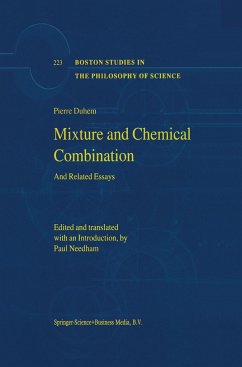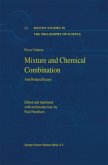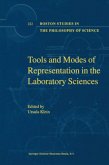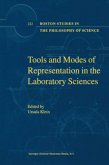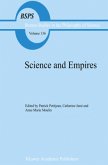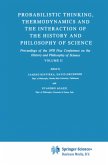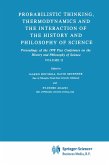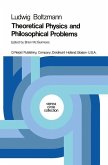Much of Duhem's work as a professional scientist was closely related to the newly emerging discipline of physical chemistry. The book and associated papers translated here revolve around his concomitant philosophical and historical interests in chemistry-topics largely uncovered by Duhem's writings hitherto available in English. He understood contemporary concerns of chemists to be a development of the ancient dispute over the nature of mixture. Having developed his historical account from distinctions drawn from the atomists and Aristotelians of antiquity, he places his own views of chemical combination squarely within the Aristotelian tradition. Apart from illuminating Duhem's own work, it is of interest to see how the ancient dispute can be related to modern science by someone competent to make such comparisons. The book is lucid and logically stringent without assuming any particular mathematical prerequisites, and provides a masterly statement of an important line of nineteenth century thought which is of interest in its own right as well as providing insight into Duhem's broader philosophical views.
"Duhem's command of the historical development of atomism (of whose status as scientific theory he was critical) still makes for interesting reading despite today's very different concepts of chemical structure. His account of the development of thermodynamics, for Duhem "the apex of inductively derived abstract science" (see John Nye's Molecular Reality, 1972), is noteworthy for its clarity and simplicity. Both bibliography and index are good."
(E.R. Webster, emerita, Wellesley College in Choice, November 2002)
(E.R. Webster, emerita, Wellesley College in Choice, November 2002)

